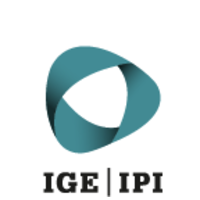Swiss Federal Institute of Intellectual Property

The Institute
The Swiss Federal Institute of Intellectual Property has its headquarters in Bern. It is the federal agency for matters concerning intellectual property in Switzerland.
It was founded in 1888. It received its present status as an organisation incorporated under public law on 1 January 1996. In terms of business structure, the Institute is autonomous, has its own legal entity and is entered in the Commercial Register. It keeps its own accounts and is independent of the Swiss federal budget in every way.
It was founded in 1888. It received its present status as an organisation incorporated under public law on 1 January 1996. In terms of business structure, the Institute is autonomous, has its own legal entity and is entered in the Commercial Register. It keeps its own accounts and is independent of the Swiss federal budget in every way.
What are the Institute’s tasks?
The Institute is the federal agency for intellectual property matters.
The Institute's service contract is set out in the Institute's Statute. Its primary task is to be the point of contact for customers regarding industrial protective rights (trademarks, patents and designs) in Switzerland and, to some extent, for corresponding international applications. It examines the Swiss national filing applications and grants industrial property rights and administers them. These sovereign responsibilities are regulated in the special legislation on intellectual property (trademark, patent and design laws).
- Sovereign activities provided by the Institute are exempt from VAT. Services provided on the basis of private law, however, are subject to VAT under the VAT Act (see Art. 17 IGEG in German, French or Italian).
It also has a service agreement with the Federal Department of Justice and Police(FDJP) by which it is charged with the tasks of drafting legislation in the field of intellectual property, acting as advisory to the Federal Council and other federal administrators and representing Switzerland at the international level.
The Institute statute also mandates it to offer services in the area of trademark research and patent information on the basis of private law.
Finally, the Institute has the task of promoting the intellectual property system, and above all, the benefits of it, in Switzerland. In particular, small and medium sized businesses (SME’s) should be sensitised to an active protective rights policy. This also includes being made aware that the important information available in protective rights can be exploited to their advantage for a reasonable price.
How do we interpret the Institute’s mandate?
The quintessence of our mandate lies in providing domestic and foreign businesses with an appropriate, effective, dependable and easy to use protective system for intellectual property such that incentives are provided for the creation and optimal explotation of intellectual economic and cultural goods in the interests of the Swiss economy:
- For the examination, granting and administering of intellectual property rights titles, compatibility with international protective rights systems is to be maintained while, at the same time, the possibility of autonomous functionality for our national system is safeguarded. In addition to guarding the needs of the users of the protective rights system, we also must protect those third party and general public interests which are affected by protective rights. Our procedures should be simple, transparent, expeditious and as economical as possible; our decisions legal, appropriate, homogenous and, thus, as predictable as possible.
- In the area of policy services, including most importantly advisory to the federal government, preparation of legislation and representation of Switzerland at the international level, the Institute’s mandate is carried out on the concrete level through the fulfillment of the specific commissions it receives. In general, the mandate aims to guarantee appropriate, effective protection of intellectual property and its functions at the national and international level. It takes into consideration in a balanced way the diverse interests of research and development, the economy, users of the IP system, those in the arts and related areas, producers, consumers and others affected by protective rights as well as the ethical aspects and the aspects in terms of development politics and environmental politics. It also includes Switzerland being perceived as a competent and reliable partner for intellectual property matters at the international level.
- Our mandate to provide information aims to optimize the opportunities of individuals and businesses to use the intellectual property protection system for their economic success. The mandate includes, firstly, balanced information in a user-friendly format regarding the various protective rights systems at the national and international level, how they function and their benefits. The purpose of our commercial services – namely ip-search trademark searches and patent information – is also to meet this mandate, even if they intersects areas where private service providers are also active.
The consumers or addressees of our services differentiate themselves through their various roles within the Swiss economy as well as their expertise, strengths and political legitimization. Our task is to provide services which are appropriate to the needs and capabilities of the various addressees.
The Institute, as a branch of the federal government, is expected to be fiscally responsible (primarily through the handling of its reserves, its risk-taking policies and the accounting standards it uses). At the same time, we are expected to reduce costs, increase productivity and, to the extent possible and meaningful, to adjust fees accordingly. Since it became autonomous in 1996, the Institute has undertaken seven significant fee reductions equivalent to a total volume of approximately 40 million Swiss francs per year.
Service quality
The Institute places a high value on quality service. It regularly evaluates the quality of the services it provides, reduces the time it takes to reply for applications and queries, optimizes its procedures, and assesses the fees for protective rights titles and services and, if possible, lowers the fees.